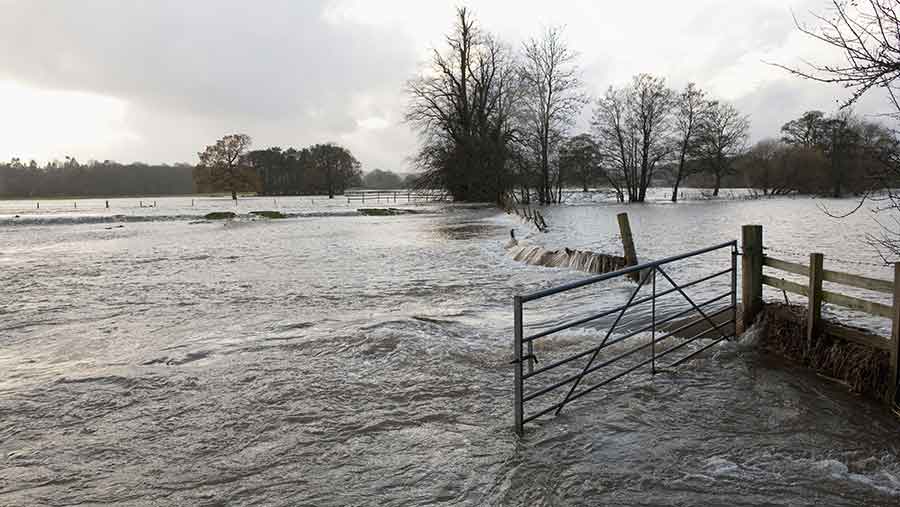Volatile weather ‘threatens British food production’
 © Design Pics Inc/REX Shutterstock
© Design Pics Inc/REX Shutterstock Increasingly volatile weather is threatening British food production, say farmers, who warn that agriculture is on the frontline of climate change.
Two-thirds of UK farmers have noticed an increase in severe and extreme weather over the past 10 years, according to an NFU survey.
The survey findings were launched as world leaders converged on France for the United Nations climate change conference in Paris.
See also: Farmers ‘cannot ignore climate change threat’
They are consistent with the climate change impacts predicted by scientists.
Most NFU members surveyed have seen changes in rainfall patterns and more flooding, with 25% also observing an increase in storms, gales or high winds.
But some farmers reported less severe weather, with 10% saying winters had become milder.
NFU vice-president Guy Smith said: “It is very worrying that nearly 60% of farm businesses have actually been affected by severe weather events in the past 10 years.
“This news comes as a stark reminder that agriculture is on the front line of climate change impacts.”
Changing weather patterns were having a financial and emotional impact on farmers, said Mr Smith – and reinforced the need for government action.
Increased investment was needed in UK-relevant agri-science – including development and approval of biotechnology through to commercialisation, said Mr Smith.
The NFU has also called for fiscal incentives that enable farm businesses to manage volatility and promote capital investment.
Earlier this year, the NFU successfully argued that farmers’ taxable profit averaging should be extended from two to five years to help our members manage the impact of volatility.
But more needed to be done, said Mr Smith.
“From time immemorial farmers have always battled with the weather when it comes to producing food, but if climate change projections are correct then this battle is going to get more challenging.
“Investment in better buildings, better land drainage and better irrigation can make farms more resilient in the face of tempest, flood and drought.
“But the food chain must support profitable farming in order to enable such agricultural adaptation, backed by government setting the right regulatory regime – such as allowing farmers access to water so they are prepared for times of drought.”
The survey shows that farmers are altering what they do in response to the changes in the weather and longer-term climate that they are experiencing.
But Mr Smith warned: “We’re moving into uncharted climatic territory.
“This is why we want government to work with British farmers to develop an ambitious food and farming strategy, rewarding investment in climate resilience so that we can fulfil our substantial production potential for an increasingly uncertain future.”
